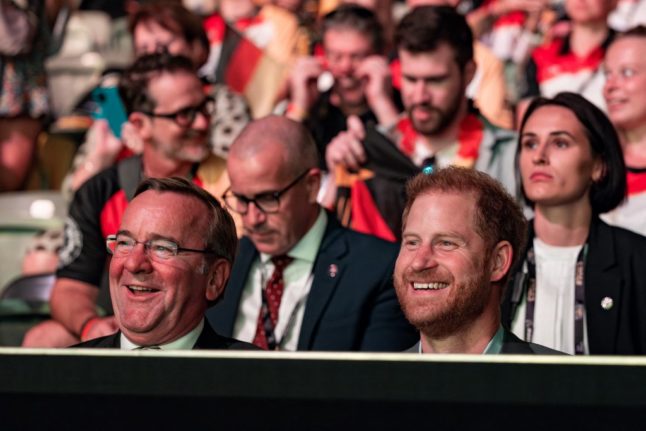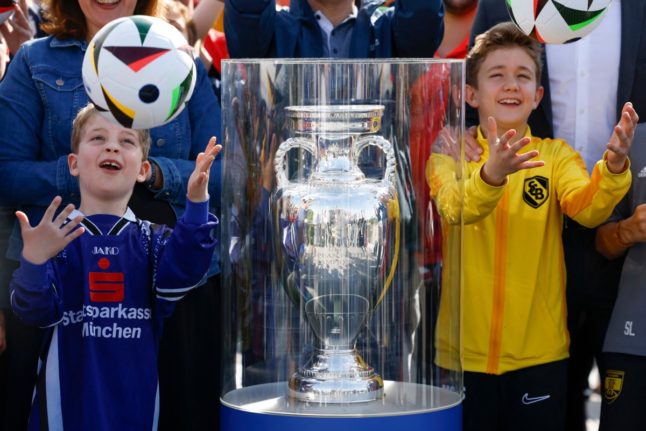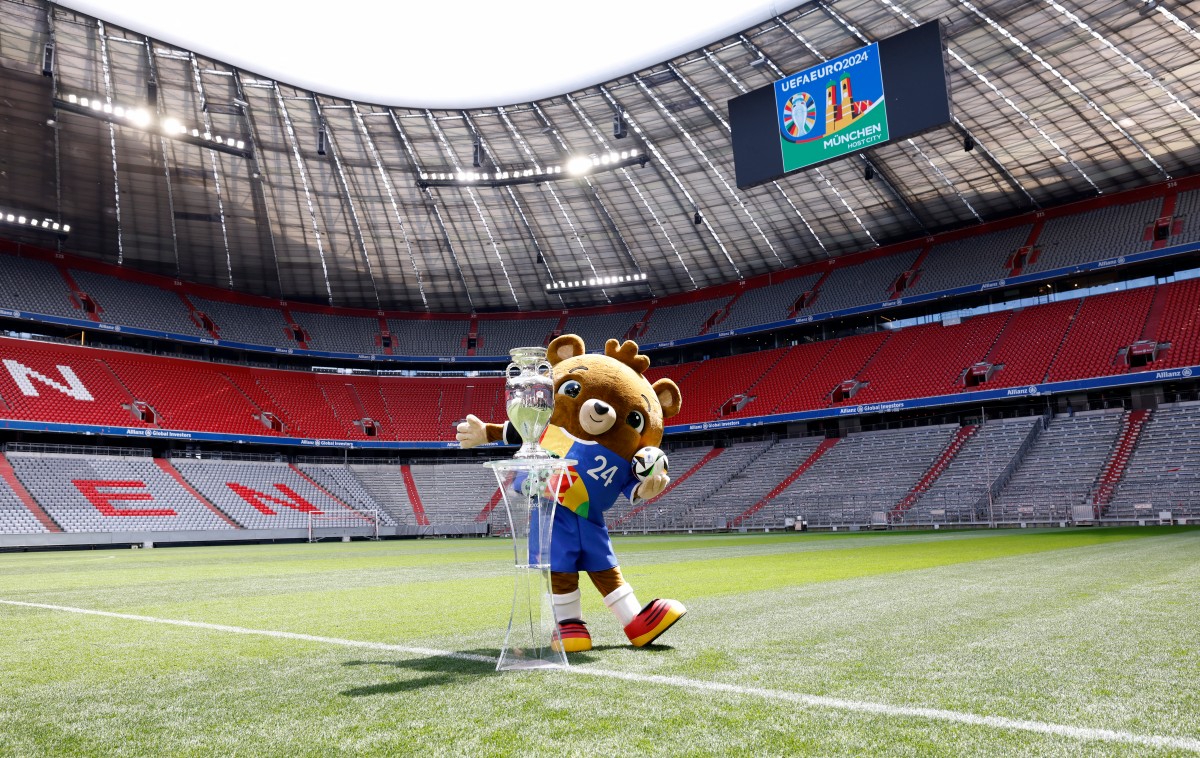The Duke of Sussex, in Duesseldorf to open the Invictus Games, took on Pistorius and two athletes in the shootout on German late-night television.
Harry failed to convert any of his six shots against a modified goal, which included two openings for players to score in the absence of a goalkeeper.
Pistorius, a previous minister for sport in the German state of Lower Saxony, converted two of his six attempts.
Having promised to wear a Germany shirt if he lost the shootout, Harry donned a scarf of Bundesliga side Mainz when a Nationalmannschaft kit could not be found.
The Duke put the scarf on and smiled as the crowd cheered. Mainz is the former club of current Liverpool manager Jurgen Klopp.
The show took place after Germany’s shock 4-1 loss to Japan and Harry joked with the victorious Pistorius “you could manage the national team”.
The defence minister quipped back “I have enough troubles.”
Prince Harry, who served in the military in Afghanistan, founded the Invictus Games in 2014 for wounded, injured and sick service members.




 Please whitelist us to continue reading.
Please whitelist us to continue reading.
Member comments